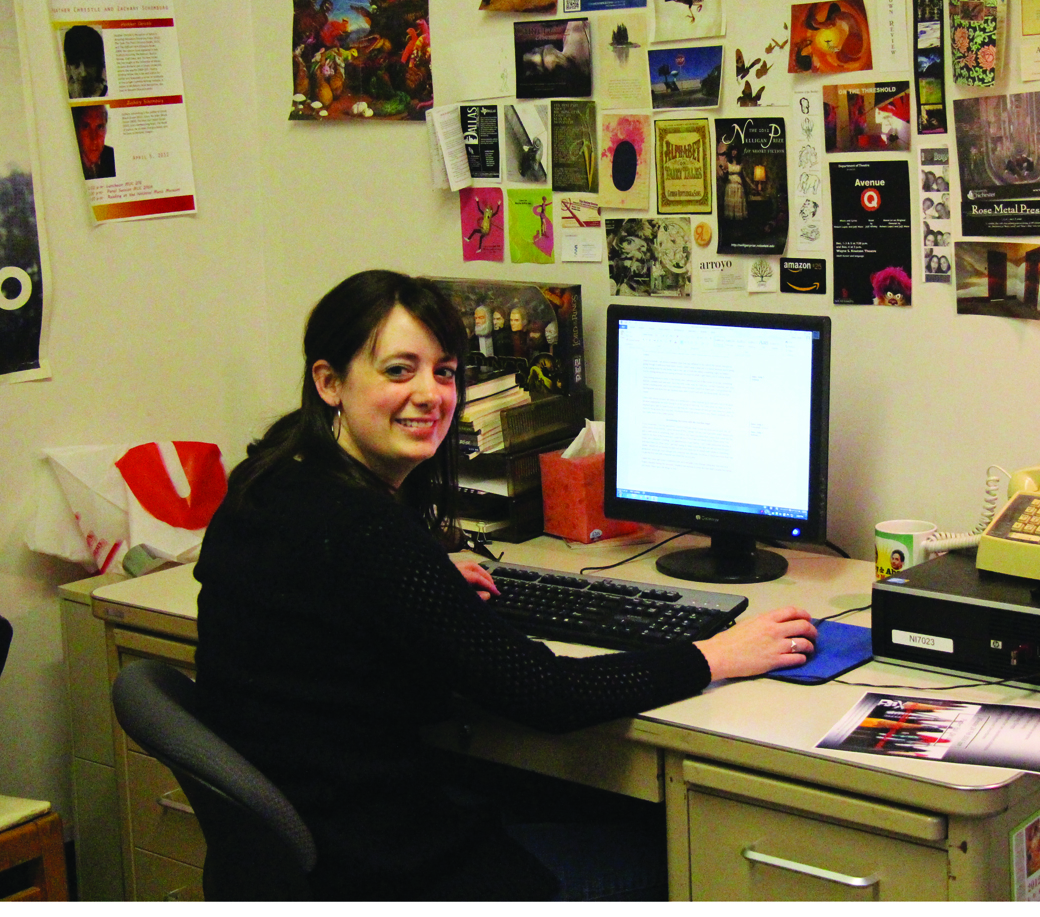
Student pens book on Romanian orphans
When Holly Baker took 10 minutes to watch a video on Romanian orphanages in early 2013, she did not imagine what the video would inspire.
In fact, the video — which highlighted the struggles of Romanian orphans and orphanage homes following the country’s release from communism -— was just an interesting video, until she shared it.
“This was the first time I became aware of the situation,” Baker said. “I was sharing the story to my colleague Phil McKenzie, about the plight of these orphans, and he said that would make a pretty good story. “I thought to myself ‘Well, it kind of would.’”
Now, after almost a year of planning, researching and writing, Baker has turned Romanian orphanages and the trauma surrounding their sufferers into the subject of her doctoral dissertation and plans to have her work published as a novel.
She hasn’t decided on a title but is calling the novel “Stealing Them Away” for now.
“As far as I have found, it has never been fictionalized,” she said. “I’m making an attempt to explore the world from a narrative perspective, sort of tracing the trauma.”
For Baker, the process of writing the novel hasn’t been easy.
She decided on the dissertation subject and presented it to her dissertation committee last February, but wasn’t able to truly begin work until September because of her doctoral exams.
“I haven’t had as streamlined a path of writing as I wish I could have,” she said.
All Baker has left is the dissertation before she can receive her degree: a doctorite in literary studies with an emphasis in fiction writing.
Until then, she’ll be focusing solely on the story of those children and families.
“It’s sort of a balance,” she said. “I need to do this research, and I need to do the subject justice and treat it with a great amount of respect.”
John Dudley, chair of the English Department at the University of South Dakota and member of Baker’s dissertation committee, said Baker is a doing a great job of covering the respects of the subject and the fictional novel writing.
“What is most striking to me about her novel is the balance it maintains between historical research and creative imagination,” Dudley said. “Her writing works on both an intellectual and emotional level.”
As far as tackling the subject of the Romanian orphanages in the right way, Lee Roripaugh, Baker’s dissertation committee chair, said she believes Baker has the skills necessary to put the novel together.
“Holly is particularly suited to writing this novel since she has a very strong background in writing creative nonfiction, and this project relies on extensive research — a skill that creative nonfiction writers learn to hone,” Roripaugh said.
The novel will center on two sibling girls, their adoptive parents and their birth mother. Baker plans to have her novel be broken into four parts, shedding light on a variety of travesties that surround the country’s break from communism and poor care of orphaned children.
“Baker’s dissertation project is going to be a particularly interesting novel due to its timely and powerful themes regarding global adoption, cultural identity and national trauma,” Roripaugh said.
Baker said she wants to tell the story that keeps on going.
“Even though the children have been adopted, it doesn’t mean they are rescued,” Baker said. “It has effected hundreds of American families both in positive and negative ways.”
The video that inspired Baker was a TED Talk ‘The tragedy of orphanage’ by Georgette Mulheir, CEO of Lumos, an international organization helping children in need of health, education and social care.
In the video, Mulheir speaks about the dangers and living conditions in orphanages that still persist in the country: the western world knew little of the problems in the country until the Romanian president was executed on Christmas Day 1989 and the country was more open to visitors.
When visitors arrived, Baker said they saw a different world.
“All around the country, hundreds of orphanages, thousands of children were found shoved together with very little care. There would be rooms full of cribs, full of children 6-7 years old and one person to take care of them,” she said.
Roripaugh said she understand the challenges Baker has faced in attacking the novel and handling the difficult Romanian conflict that still persists.
“With its exploration of the Romanian orphan crisis of the 1980s, the novel reveals unsettling histories taking place in Eastern Europe and the ways in which these histories ripple outward in significant ways,” Roripaugh said.
Roripaugh said the perspective Baker is bringing is the right one, blending historical events with fictional flavor.
“It’s going to be a terrific novel,” Roripaugh said.
Baker said she just wants it to reveal the story of those affected.
“Even though the crisis began decades and decades ago, it has not been resolved,” Baker said. “There are still a lot of orphans over there, families that can’t take care of their children.”
Photo: Graduate student Holly Baker poses for a photo in her office Tuesday, April 1 in Dakota Hall. Baker is currently writing a novel on orphans in Romania. (Malachi Petersen/The Volante)

